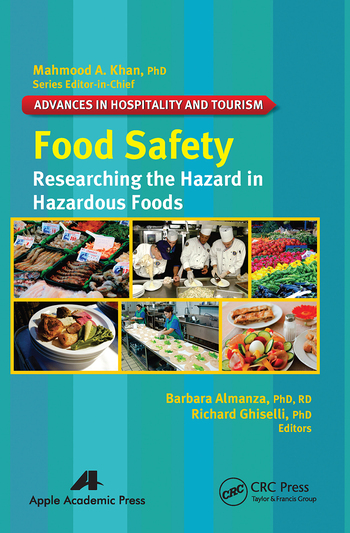Article: Regulations: Safety Dance -- August 2008
On July 1, the Interagency Working Group on Import Safety delivered its report to the president, describing the import safety practices improvements since the last report, “November 2007--Action Plan for Import Safety,” and forecasting steps to be taken for the safety of U.S. consumers of imported products. The Action Plan Update is broken down into International Highlights; Private Sector Engagement Highlights; U.S. Government Administrative and Regulatory Highlights; and Conclusion.
International High-lights. In addition to “international forums to explore joint efforts for improving product safety,” direct discussions focusing on import safety have been held with China, Canada, Australia, New Zealand, Mexico, India, Vietnam, Brazil and the E.U. Under the Security and Prosperity Partnership between Mexico, Canada and the U.S., memorandums of agreement (MOAs) have been entered for the exchange of information, sharing of best practices and risk assessment data. An MOA with China relating to food and feed exported to the U.S. was signed in December 2007. China’s Administration of Quality and Supervision, Inspection and Quarantine has agreed to notify FDA within two calendar days of the discovery of “significant risks to the public health.”
Private Sector Highlights. Cooperative efforts between the federal government and the private sector reflect their shared interest in imported product safety. Some programs are part of “a symbiotic approach,” including expansion of private sector standards programs (including certification programs; establishment of “good importer practices;” and best practices for recall notification and “track-and-trace” capabilities). The update takes special note of Wal-Mart’s efforts to require supplier certification under the Global Food Safety Initiative. Also described are efforts by the Grocery Manufacturers Association’s Food Supply Chain Handbook; the Natural Products Association’s Good Manufacturing Practices; and the Toy Industry Association and the American National Standards Institute.
Administrative and Regulatory Highlights. Regular meetings to exchange information and expertise among federal agencies have included Customs and Border Protection, Department of Justice, Department of Agriculture, Department of Commerce, Consumer Product Safety Commission, FDA, EPA and the Department of Transportation. Among the projects are an improved “cargo clearance process;” import data exchange network; and actions against counterfeit goods. Justice is initiating prosecution of two executives on allegations of conspiracy to import honey products not in compliance with U.S. statutes and regulations. The update references calls in the original action plan for legislative initiatives to agencies for enhanced recall authority, among others. The initiatives will continue to be pursued.
Conclusion. “Since the release of the action plan last November, federal departments and agencies, our foreign government partners and the private sector have taken significant steps to improve the safety of product imported into the U.S.”
GRAS NotificationsAn FDA “positive response” (i.e., “FDA has no questions”) has been issued for the following notifications of self-determined GRAS substances.
Date of FDA Letter and substance:
* May 29, 2008--Lactobacillus casei subsp. rhamnosus strain GG.
* April 30, 2008--Chymosin enzyme preparation from Trichoderma reesei expressing the bovine prochymosin B.
* February 18, 2008--Methylsulfonylmethane (MSM).
* January 3, 2008--Lecithin derived from krill.
International High-lights. In addition to “international forums to explore joint efforts for improving product safety,” direct discussions focusing on import safety have been held with China, Canada, Australia, New Zealand, Mexico, India, Vietnam, Brazil and the E.U. Under the Security and Prosperity Partnership between Mexico, Canada and the U.S., memorandums of agreement (MOAs) have been entered for the exchange of information, sharing of best practices and risk assessment data. An MOA with China relating to food and feed exported to the U.S. was signed in December 2007. China’s Administration of Quality and Supervision, Inspection and Quarantine has agreed to notify FDA within two calendar days of the discovery of “significant risks to the public health.”
Private Sector Highlights. Cooperative efforts between the federal government and the private sector reflect their shared interest in imported product safety. Some programs are part of “a symbiotic approach,” including expansion of private sector standards programs (including certification programs; establishment of “good importer practices;” and best practices for recall notification and “track-and-trace” capabilities). The update takes special note of Wal-Mart’s efforts to require supplier certification under the Global Food Safety Initiative. Also described are efforts by the Grocery Manufacturers Association’s Food Supply Chain Handbook; the Natural Products Association’s Good Manufacturing Practices; and the Toy Industry Association and the American National Standards Institute.
Administrative and Regulatory Highlights. Regular meetings to exchange information and expertise among federal agencies have included Customs and Border Protection, Department of Justice, Department of Agriculture, Department of Commerce, Consumer Product Safety Commission, FDA, EPA and the Department of Transportation. Among the projects are an improved “cargo clearance process;” import data exchange network; and actions against counterfeit goods. Justice is initiating prosecution of two executives on allegations of conspiracy to import honey products not in compliance with U.S. statutes and regulations. The update references calls in the original action plan for legislative initiatives to agencies for enhanced recall authority, among others. The initiatives will continue to be pursued.
Conclusion. “Since the release of the action plan last November, federal departments and agencies, our foreign government partners and the private sector have taken significant steps to improve the safety of product imported into the U.S.”
GRAS NotificationsAn FDA “positive response” (i.e., “FDA has no questions”) has been issued for the following notifications of self-determined GRAS substances.
Date of FDA Letter and substance:
* May 29, 2008--Lactobacillus casei subsp. rhamnosus strain GG.
* April 30, 2008--Chymosin enzyme preparation from Trichoderma reesei expressing the bovine prochymosin B.
* February 18, 2008--Methylsulfonylmethane (MSM).
* January 3, 2008--Lecithin derived from krill.
Looking for a reprint of this article?
From high-res PDFs to custom plaques, order your copy today!





